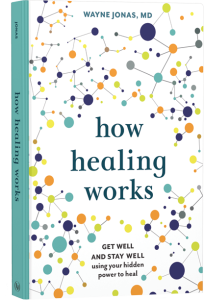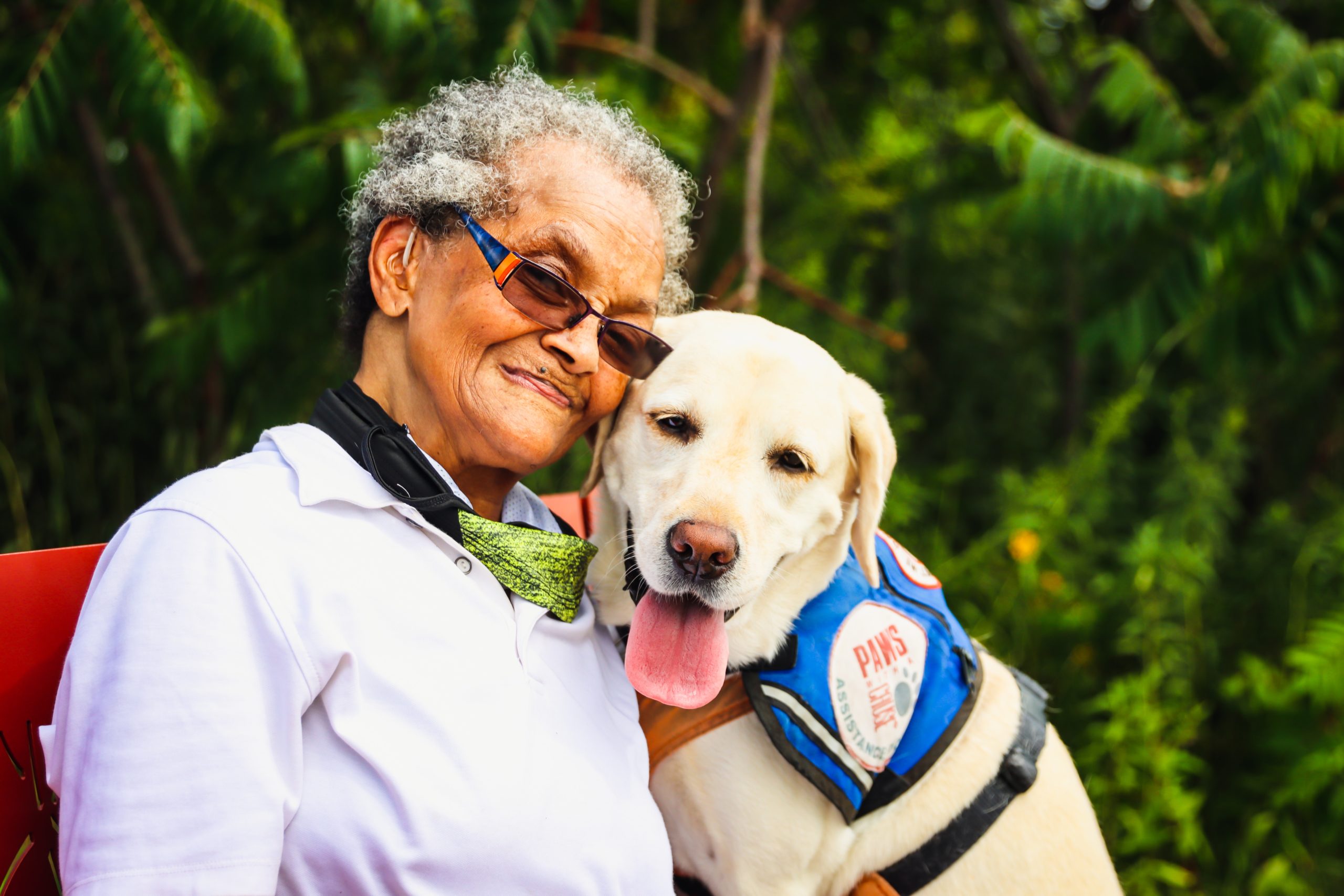Research has long suggested that humans benefit physically and emotionally from spending time with animals. Lower blood pressure, reduced stress,[i] and more exercise[ii] are just a few of the findings. Other benefits may include preventing the development of allergies[iii] and helping us get to know our neighbors.[iv]
The bond with pets
If you have a pet, they probably come to mind first when you reflect on what researchers call “human-animal interactions.” Does your pet—or family of them—come running when you walk in the door? Do they headbutt you for pets or treats? Do they demand you put down that electronic device and go for a walk? All this interaction is good for you—and for them.[v]
Some pets are classified as “emotional support” animals for the benefits that a human-animal bond creates. While this designation has been overused at times, requiring organizations like hospitals and airlines place some limits on the types of animals allowed, recent research shows animals can indeed provide important emotional support for people with serious mental illness.[vi]
Have you ever wondered why dentists often have tropical fish in their offices? Social worker Dr. Allan Schwartz explains that while the sight of fish swimming peacefully in an aquarium can be calming, the process of caring for your own fish can also soothe your mind and spirit, with beneficial effects on the physical body.[vii]
Caring for farm animals
Spending time with animals in traditional farming and herding can also benefit us—something people who do this type of rural work already know. Today, the British National Health Service is establishing “care farms” as part of mental health treatment, following a trend established in Europe. Treatment involves taking part in agricultural tasks. In the US, these places are called “therapeutic farms.“
Some traditional farm animals have also become pets. Brian, who is retired, owns three goats, although he is not officially a farmer and has no particular plans for his animals. He says they are easy to care for and “incredibly social,”—plus, they help keep the bushes trimmed.
Animals in the wild
“The wild deer wandering here and there keeps the human soul from care,” wrote the English poet William Blake. “Care,” of course, meant worries and concerns in Blake’s day, and if you’ve ever watched a family of deer stroll through a natural area, you might agree.
One of the easiest ways to enjoy watching wildlife is by having a bird feeder or birdbath. You can also plant a bird-friendly garden. The physical activity and time outdoors, of course, benefits physical and mental health while watching birds engages your mind and soothes your spirit.
Horses and humans
The American Heart Association hosts a Beach Ride each year as part of its efforts against heart disease, the leading cause of death among women in the United States. Read the AHA’s blog post 6 Health Benefits of Horses. It explains how spending time with a horse can help prevent heart disease. (Learn more about how time with animals benefits your heart health at Healthy Bond for Life, also from the AHA).
Maria, a marketing manager at a hospital, spends one afternoon a week riding at a local stable. “I can’t think about anything else when I’m riding,” she says. “Riding requires total focus, and having to stay completely in the moment clears my mind.”
Riding is also offered as therapy for children and sometimes adults with autism, Down syndrome, and other conditions. These programs, known as therapeutic riding, usually involve extremely docile horses who are led by a “side walker.” Learn about this therapy from the Autism Spectrum Disorder Foundation.
Animals in therapy and education
Many prisons have programs that pair inmates with dogs from local shelters to train the dogs to be well behaved and more adoptable or, in some cases, even to work as service dogs. The human participants learn skills like patience and persistence, and many dogs who would otherwise be euthanized are able to find homes. Read about the Pawsitive Change program for an inspiring example.
A variety of animals also provide pet-assisted therapy in hospitals and assisted living or nursing facilities. Residents who may not respond to staff or relatives can be delighted by a visit from a dog or cat. While more research needs to be done, visits from animals can help people with dementia find focus and calm when little else does.[viii] More than a dozen children’s hospitals in the United States now have full-time “facility dogs” who help reduce stress and improve feelings of wellbeing in staff members and build rapport with patients and families.[ix]
Animals in school classrooms have been shown to help children build social skills and improve academic performance. The Pets in the Classroom Study followed nearly 600 children in third and fourth grade through a full academic year. The study found benefits from greater reading competence to greater cooperation among students for kids whose classrooms included a pet.[x]
Finally, service animals—most often canine, but miniature horses too, have entered this realm. These animals can make an enormous difference to people living with physical issues such as paraplegia or blindness. By allowing someone with vision loss or movement challenges to live more independently, a guide dog (or horse) supports health and wellbeing.
Practicing respect for fellow creatures
Human and animal interactions create health in many ways. One more aspect to consider is the health of our animal companions or charges. Making sure pets, livestock, and wildlife have the treatment, space, and habitat they need makes us more compassionate. One of the greatest benefits of interacting with other species is developing our capacity to step outside ourselves to care for other beings—a capacity that helps us bring greater health to everyone.
References
[i] Allen KM, Blascovich J, Tomaka J, Kelsey RM. Presence of human friends and pet dogs as moderators of autonomic responses to stress in women. J Pers Soc Psychol. 1991;61(4):582-589. doi:10.1037//0022-3514.61.4.582
[ii] Westgarth, C., Christley, R.M., Jewell, C. et al. Dog owners are more likely to meet physical activity guidelines than people without a dog: An investigation of the association between dog ownership and physical activity levels in a UK community. Sci Rep 2019;(9) 5704. https://doi.org/10.1038/s41598-019-41254-6
[iii] Hesselmar, et al. Pet-keeping in early life reduces the risk of allergy in a dose-dependent fashion. PLoS ONE 2018; doi: 10.1371/journal.pone.0208472.
[iv] Wood L, Martin K, Christian H, Nathan A, Lauritsen C, Houghton S, et al. The pet factor – companion animals as a conduit for getting to know people, friendship formation and social support. PLoS ONE 2015;10(4): e0122085. https://doi.org/10.1371/journal.pone.0122085
[v] Leventhal A. Animals benefit from human touch, as much as the reverse. Hartford Courant, January 12, 2000. Available at https://www.courant.com/news/connecticut/hc-xpm-2000-01-13-0001130751-story.html. Accessed February 22, 2022.
[vi] Linkhorn T. Study finds first scientific evidence emotional support animals benefit those with chronic mental illness. UToday News. Available at https://news.utoledo.edu/index.php/05_20_2021/study-finds-first-scientific-evidence-emotional-support-animals-benefit-those-with-chronic-mental-illness. Accessed February 22, 2022.
[vii] Schwartz A. Stress reduction, tropical fish, and aquariums. MentalHelp.net. Available at https://www.mentalhelp.net/blogs/stress-reduction-tropical-fish-and-aquariums/. Accessed February 23, 2022.
[viii] Krüger J, Izgi R, Hellweg R, Ströhle A, Jockers-Scherübl MC. Treating agitation in patients with dementia with a therapy dog in a milieu therapy setting on a geropsychiatric ward [published online ahead of print, 2021 Dec 29]. Dement Geriatr Cogn Disord. 2021;1-7. doi:10.1159/000520881
[ix] Rodriguez KE, Bibbo J, O’Haire ME. Perspectives on facility dogs from pediatric hospital personnel: A qualitative content analysis of patient, family, and staff outcomes. Complement Ther Clin Pract. 2022;46:101534. doi:10.1016/j.ctcp.2022.101534
[x] McCullough A, Ruehrdanz A, Garthe R, Hellman C, O’Haire M. Measuring the social, behavioral, and academic effects of classroom pets on third and fourth-grade students. Human Animal Interaction Bulletin 2019;Advance online publication.

Take Your Health Into Your Own Hands
Drawing on 40 years of research and patient care, Dr. Wayne Jonas explains how 80 percent of healing occurs organically and how to activate the healing process.

